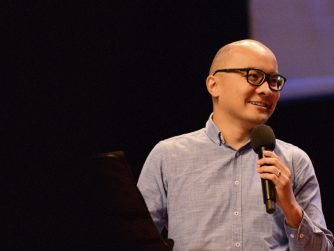“But I know that already!”
This is one of the most common complaints people make. And with the access of information at an unprecedented level (and growing), it looks like the person has a good point. Our generation probably knows about more things than any other generation in the history of all humanity.
But is knowing about something the same as knowing something? No, it’s not.
We may have heard a number of talks about health and healthy practices, but is it reflected in our lifestyle? Maybe we follow the tweets of financial experts, but have their tweets made an impact on our budget? You might say that the pastor’s sermon is old stuff, but how much of the “old stuff” are you living consistently?
As we see, there’s different degrees of knowing something. Here are the Three Levels of Learning:
Exposure
We’re encountering the idea for the first time. Because it’s new, there’s a sense of excitement and thrill. Maybe we want to learn as much about it as possible. We click all the related links on Wikipedia. And we might speak to a lot of friends about it. This is the most exciting stage.
Sadly, this is where most “learning” stays now. Our different social media and information feeds push new content to us every hour. There’s so much more reading happening. But how much is being retained?
Familiarity
We’ve heard these concepts before and we don’t feel completely out of our element. Maybe it’s History and you can kinda place events within 500 years. Or you’ve started learning a new sport and now know how to score. Or maybe you’re meeting someone and you don’t forget their name every time.
This is a good step forward, but still not enough. Too many people confuse this stage with the next one. It’s not enough to be familiar with something. The question we must ask ourselves is, “How am I applying it?”
Understanding
We reach this stage when we aren’t just familiar with the concepts, but they become a part of us. I was arrested by this idea when I was in college. Someone asked me, “With all the books I see you read, how much do you remember?” That’s when I realized that many of the books I’d read before then were forgotten.
Understanding is when we can apply the lessons, when the concepts we’ve heard about help us make decisions, relate with people, and understand the world. We know we understood something when we can see how this individual piece of knowledge can connect to other similar ideas we’ve learned. Most of all, we can only say we truly understand something when it changes the way we live.
If we only know about something, we’re nowhere near knowing it at all. That takes discipline.








Nice breakdown. This is true also and can be used in basketball. 🙂